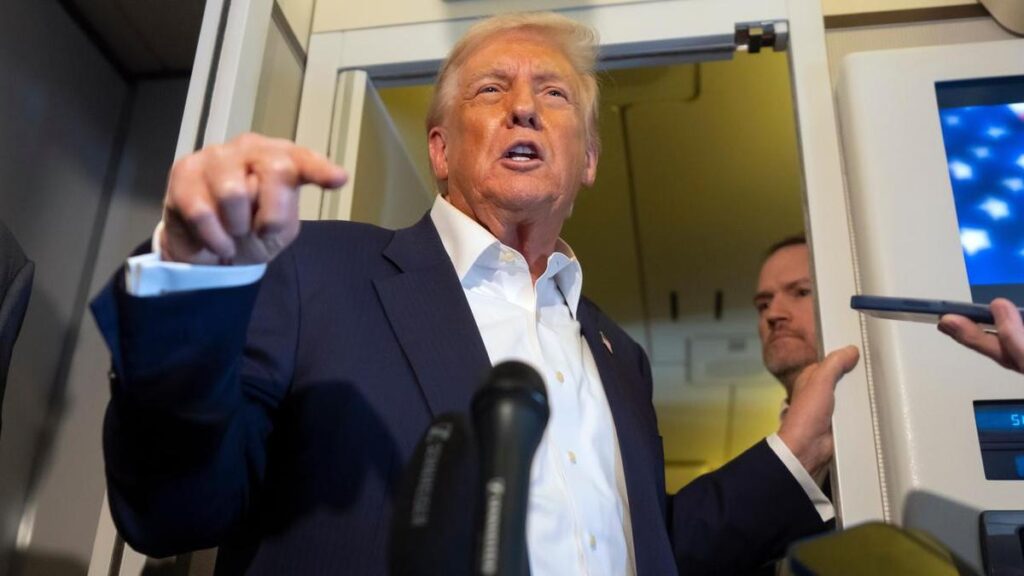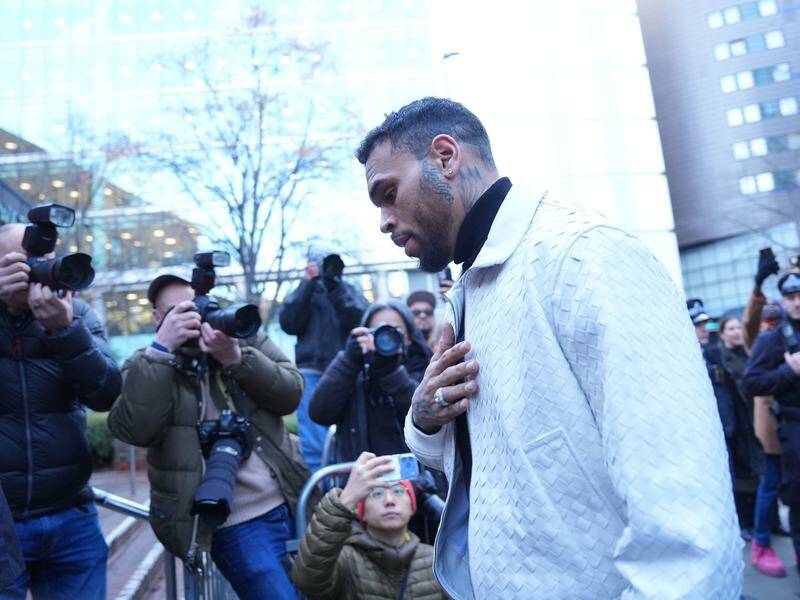
US President Donald Trump has called on Russian President Vladimir Putin to cease military operations in Ukraine, emphasizing that the ongoing conflict should have concluded swiftly. This statement follows Russia’s recent announcement regarding the successful test of its nuclear-powered Burevestnik cruise missile, which Moscow claims can bypass any defense systems.
During a press interaction aboard Air Force One, Trump remarked that the United States maintains a nuclear submarine positioned off the Russian coast, suggesting that such military capabilities negate the necessity for long-range missile tests. He stated, “They know we have a nuclear submarine, the greatest in the world, right off their shores, so it doesn’t have to go 8000 miles.”
The Burevestnik, also referred to as the SSC-X-9 Skyfall by NATO, reportedly traveled a distance of 14,000 kilometers during its test flight. This missile has been portrayed by Russia as a direct response to perceived threats from US missile defense initiatives and NATO expansion, particularly following the US withdrawal from the 1972 Anti-Ballistic Missile Treaty in 2001.
In response to Trump’s comments, Kremlin spokesman Dmitry Peskov asserted that Russia will prioritize its national interests and does not view the missile test as a provocation that would strain relations with Washington. Peskov stated, “Despite all our openness to establishing a dialogue with the United States, Russia, first of all, and the president of Russia, is guided by our own national interests.”
Trump has previously indicated a willingness to reposition US submarines near Russia in light of comments made by former Russian President Dmitry Medvedev regarding the risks posed by nuclear tensions. Discussions about the locations of nuclear-armed submarines are uncommon, suggesting the gravity of these exchanges.
On the topic of missile testing, Trump mentioned, “We test missiles all the time. They’re not playing games with us and we’re not playing games with them either.” This statement reflects the ongoing military posturing between the two nuclear powers.
Meanwhile, Ukrainian President Volodymyr Zelenskiy is anticipating a peace proposal from allied nations aimed at resolving the conflict. A report from US news outlet Axios indicated that a coalition of 35 countries, led by the United Kingdom and France, is working to develop a concise set of proposals within the coming week to facilitate discussions.
Despite these diplomatic efforts, Zelenskiy expressed skepticism about Putin’s willingness to comply with any potential agreement. The situation remains fluid, as international leaders navigate the complex landscape of military and diplomatic interactions in the region.






